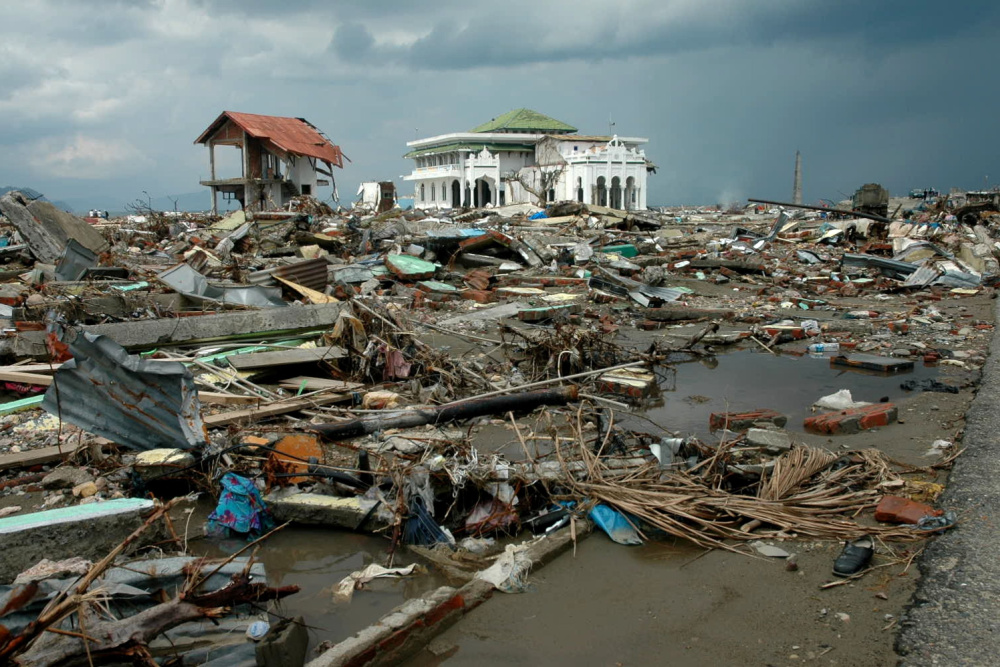Fourteen years after the cataclysmic 2004 tsunami, its relentless impacts still linger, profoundly shaping the health of survivors.
Researchers uncover these haunting echoes in the lives of Indonesian women, visible through critical medical indicators. Survivors of the tsunami shown signs of lower levels of cortisol, a stress hormone.
The Tsunami’s Silent Echo:
The disaster that claimed countless lives left unseen scars on survivors. Recent findings, published in the Proceedings of the National Academy of Sciences, shed light on these invisible wounds. The study, orchestrated by an adept team from the United States and Indonesia, focuses on Aceh’s coastal residents. These individuals confront a stark reality – their bodies bear the tsunami’s indelible mark.
Cortisol: Indicator of Lingering Stress
Central to this research is cortisol, a stress hormone. In the face of adversity, cortisol levels spike, preparing the body to respond. Women exposed directly to the tsunami show 30% lower hair cortisol levels than those not similarly affected.
However, relentless stress disrupts this delicate balance, culminating in a ‘burnout’ of the hypothalamic-pituitary-adrenal (HPA) axis. This physiological turmoil manifests as abnormally low cortisol levels for tsunami survivors, even after over a decade.
The Study’s Process
The investigative team, led by Elizabeth Frankenberg, Duncan Thomas, and Cecep Sumantri, undertook the Study of the Tsunami Aftermath and Recovery (STAR). They embarked on a poignant journey, revisiting the lives of survivors interviewed in the tsunami’s immediate wake.
Ralph Lawton, then an undergraduate, played a pivotal role, journeying to Indonesia for crucial sample collection. “His contribution was invaluable,” acknowledged Duncan Thomas, highlighting the study’s collaborative spirit.
Revelations from the Research
The low cortisol levels signify more than just a hormonal imbalance. “It’s a harbinger of deteriorated physical and psychosocial health,” explains Thomas. Survivors aren’t merely living with memories of the tsunami; they grapple with its ongoing, tangible health repercussions.
Moreover, the research illuminates a concerning trend: those exhibiting post-traumatic stress symptoms in the tsunami’s aftermath now have the most significant hormonal disruptions. This correlation underscores the necessity of comprehensive post-disaster medical and psychological support.
Visual Echoes of Disaster
The tsunami’s legacy is not only human but environmental as well. Elizabeth Frankenberg draws parallels between the devastation in Aceh and that caused by similar natural disasters in the United States. The stark visual similarities imply a shared, underlying narrative of long-term health impacts, often overshadowed by immediate recovery efforts.
Learning from the Past
The findings from Aceh extend beyond regional confines, offering insights with global implications. The study serves as a clarion call to health professionals and policymakers. Factoring in long-term health assessments in disaster response strategies is not optional but essential.
Furthermore, the data hints at a foreboding message regarding climate change. The escalating frequency and intensity of natural disasters, driven by a changing climate, suggest that such long-term health implications may become a recurrent narrative globally.
Conclusion
The 2004 tsunami etched a narrative of resilience in the annals of history. Yet, the recent revelations remind us that the chapters of this story are still being written in the lives of survivors. Their medical realities urge the global community to rethink strategies in disaster response, recovery, and preparedness, ensuring comprehensive support that encompasses the often invisible, long-term health impacts.













